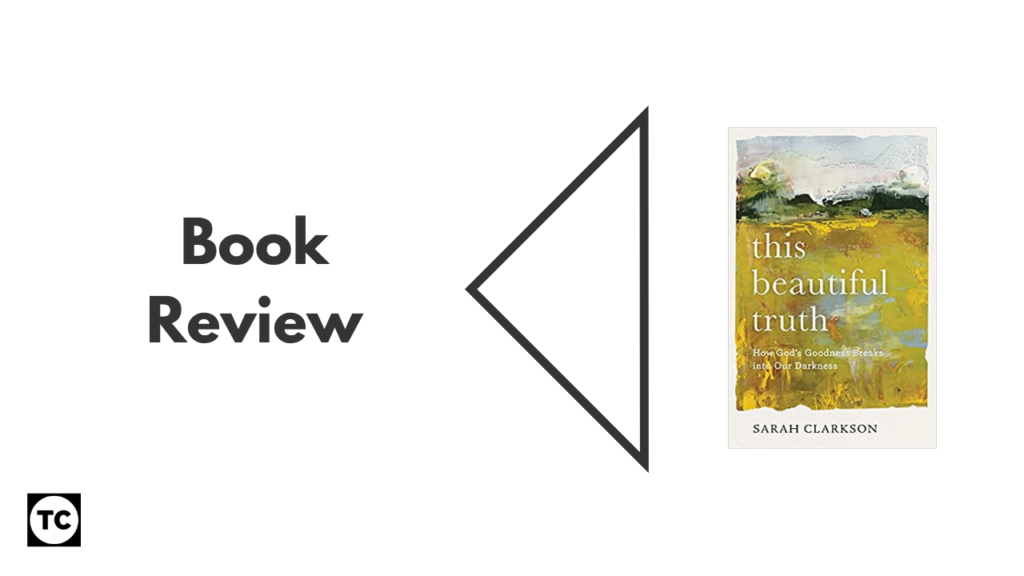
As I wrote at about the 25% mark of reading this beautiful truth, ‘this is a special book’.
It is a special book because it is beautifully written. As someone working in publishing, and someone who likes theology, and someone who likes reading books, I end up reading quite a few books. Short books. Long books. Books that don’t get published. Books that are bestsellers and really should be. Books that are bestsellers but really shouldn’t be. this beautiful truth was a book that made the reader of writing in me sing. It’s beautifully written, and that is just as well, given that it deals with beauty, and what beauty says about the world we live in.
“Beauty and brokenness told me two different stories about the world.
I believe that Beauty told true.
This is the story it told.”
This is a special book because it beautifully portrays such truth. This is a book that gets so much right theologically (orthodoxy) yet also does it beautifully (orthopraxy) and with compelling sensitivity (orthopathy). In some ways orthodoxy is easy – although, as this book reminds us, as frail humans we sometimes if not always need liturgical help in order to remember it – but this beautiful truth is a strong case for the attractiveness of orthodoxy. Orthopraxy and orthopathy are much hard to do – right-doing and right-feeling – but again I think this book hits the right note in a way that is rare and yet instantly recognisable. As a non-Anglican, this is the first book I’ve read in a while which made me want to revisit the Canterbury trail – not least as Clarkson shows so powerfully, woven in to her own story, that particularly stream has deep depth and life.
“one of the great battles fought in this battered and precious earth is the one waged by the human heart to reimagine God as good when pain and fear have hidden his face. Despair is the long and subtle work of evil. Satan triumphs within our suffering, not just in the bringing of pain but by wrecking God’s radiant image within our imagination“.
Thirdly and finally, this is a special book because it is wonderfully specific and yet brilliantly universal. As Sarah writes, “No human story is exempt from grief. There is no faith without the wild ache of impossible questions“. She writes to universal concerns, and she speaks of deeply true universal truths, but woven into this is the author’s own story, with it’s pain and longing, heartache and loss, joy and discovery, and a relentless clinging to God. In one moving vignette, Sarah describes taking communion at a time of particular suffering: “I held that bread and understood that the body of Christ is the last broken thing, the one that in a mystery, draws every broken heart into a love so mighty that death itself turns backwards within us to life“. I resonated with her story, but also with some of the places she found hope – faith, Tolkien, theology – things that are often sniffed at or only barely understood.
I could go on. But before I close with some more of the author’s words, I want to recommend this book wholeheartedly. To fellow-sufferers, to burned-out Christians (perhaps particularly leaders), to those who think Chrisianity is just a dry religion, and to those who think they’ve seen it all. This is a book that is rich and meaty but isn’t too dense – in the way that a really good piece of flapjack is filling but not overpowering, and leaves you wanting more even if that’s all you could manage. We need more books like this. I’ll close with some words that sang to me on a day when I didn’t feel like singing:
“God works and weaves a beauty we can’t imagine. He comes to heal, and it may look different than we imagined, but his goodness is always on it’s way. Good is always being crafted for us, and we are being led, step by step, into it’s light”.
Leave a Reply